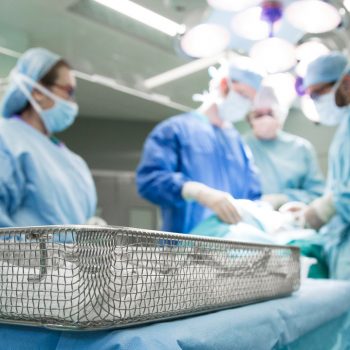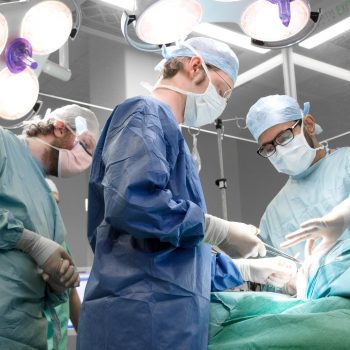Older transplant kidneys could be given a new lease of life
Researchers from the NIHR Cambridge Biomedical Research Centre are investigating whether performing biopsies of older kidneys can help transplant patients and reduce waiting lists.
Kidney Research UK reports that in the UK there are approximately 5,200 people waiting for a kidney transplant, with only 3,300 transplants carried out each year. There are many reasons why people have kidney failure and find themselves on a donor waiting list. However, to find a suitably-matched kidney can normally take more than three years from the deceased-donor pool, and in some cases a match is never found.
One way to possibly increase kidney transplant numbers in the UK is to use more kidneys from older donors (over 60 years). Many more potential older donors die in intensive care units in the UK than younger donors, but their kidneys are often not used because kidney function declines as we get older, and because of the potential associated health problems that have developed in older patients.
The National Institute for Health Research (NIHR) Cambridge Biomedical Research Centre (BRC) is leading a new trial in the UK to determine whether performing an urgent biopsy (taking a small sample of tissue) on kidneys from older donors, to test their quality, can help to increase the number of deceased kidneys transplanted in the UK. 
As we age, our kidneys develop age-related chronic injury. The extent of this injury varies between individuals, but the biopsy will enable the severity of the injury to be assessed. The team will investigate whether the information obtained from the biopsy can be used to more effectively select those kidneys that are likely to provide better outcomes for transplantation. In so doing, it is anticipated that this will lead to an overall increase in the number of kidney transplants performed each year.
Mr Gavin Pettigrew, Chief Investigator from the NIHR Cambridge BRC and consultant surgeon explained: “A lot of older people who die in intensive care are potential kidney donors, but their kidneys are frequently not transplanted because of concerns that they may not function very well. We hope that the implementation of a dedicated National Histopathology Service will increase the numbers of kidneys transplanted in the UK each year, and that the outcome of these transplants will be favourable.”
To enable urgent biopsies to be performed on kidneys from donors in any hospital in the UK, the team have developed a system where the biopsy samples will be sent to one of six coordinating centres involved in this trial; Birmingham, Cambridge, Edinburgh, Leeds, London and Newcastle where special ‘digital’ scanners have been installed.
A biomedical scientist will prepare the biopsy, take a digital image and upload the sample onto a secure digital network that the histopathologist can access, even at home. The trial has assembled a team of dedicated histopathologists based at different hospitals throughout the UK who will provide their expert opinion. “By processing the biopsy while the kidney is in transit to the recipient, the pathologist will be able to give their opinion on the biopsy to the transplant team without prolonging the time that the kidney is stored on ice.

Mr Gavin Pettigrew
“This new kind of analysing a kidney could show kidneys from older donors are suitable for transplantation,”
Gavin explained. “We currently know there are a large number of kidneys from potential elderly deceased donors that are not used. We anticipate the biopsy service will enable kidneys from this pool to be used successfully, resulting in more kidney transplants being performed. This would then have the potential to save time and money and importantly patients’ lives who are urgently waiting for a kidney transplant.”
Dialysis can cost around £20,000 per patient per year, and puts a significant burden on a patient’s life. Being able to receive an older but healthy kidney would make a huge difference to those individuals and their families.
Elaine Davies Director of Research Operations at Kidney Research UK said: “With so few kidneys available for transplant, it would be a shame to reject a kidney unnecessarily when it could potentially give the precious gift of life. We welcome the news of this new trial to make older kidneys more viable, in the hope that this will increase the number of transplants carried out each year.”
The three year trial is due to begin in October, and has been funded by the NIHR. Cambridge University Hospitals and the University of Cambridge are sponsoring this trial with support from the NIHR Cambridge BRC. It will be managed by the NHS Blood and Transplant Clinical Trials Unit.
The team are currently setting up the six biopsy scanning centres, alongside 21 participating transplant centres participating in this trial in the UK. Gavin added: “Our end goal is that if this biopsy method works, we believe we can then perform an extra 100-150 kidney transplants a year. We would ideally like to roll it out to the other transplant centres and add more scanners across the UK thereby reducing the travel time.
“We could also potentially move this method into other areas such as liver, lung transplants and even cancer patients who need treatment. The hope of this new trial is not only to save time and money, but to save lives. We want more people to receive a healthy kidney faster so they can go back to leading a normal life.”



